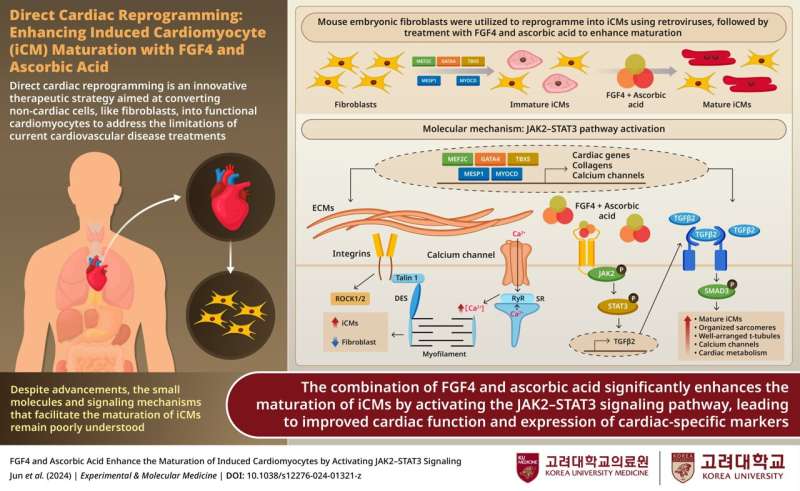The team has unveiled an innovative technique to convert fibroblasts—common connective tissue cells—into mature and functional induced cardiomyocytes (iCMs). Their method relies on combining fibroblast growth factor 4 (FGF4) with vitamin C, a pairing that accelerates cell maturation and enhances function.
“Our findings bring us closer to transforming regenerative medicine into practical therapies,” says Dr. Song, who is based at Korea University’s Department of Cardiology and in Seoul, South Korea. “This research takes an important step toward using a patient’s own cells to repair their heart.”
Direct cardiac reprogramming, a process that bypasses the intermediate stem cell stage, allows fibroblasts to be converted into iCMs. While this approach holds significant promise, scientists have struggled to produce mature and fully functional cardiomyocytes. The Korea University team addressed this hurdle by activating a critical cellular mechanism: the JAK2–STAT3 signaling pathway.

